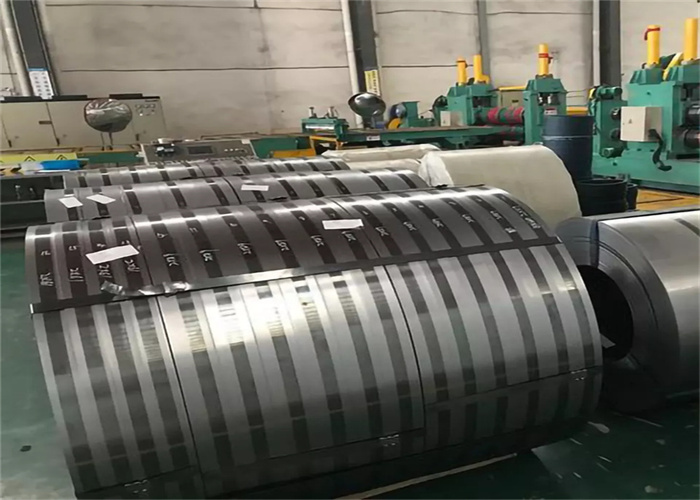Non-oriented, fully processed electrical steels
Non-oriented, fully machined electrical steel has different silicon content, ranging from 0.5% to 3.25% silicon. It has uniform magnetic properties in all directions. This type of electrical steel does not require a recrystallization process to develop its properties. Low silicon alloy grades offer better magnetic permeability and thermal conductivity. For high alloy grades, better performance is expected at high frequencies with very low losses. This type is well suited for magnetic circuits in motors, transformers and electrical system housings. This fully machined type is difficult to perforate due to the completed annealing process. Organic coatings are added to improve lubrication during the stamping process.
Non-oriented semi-processed electrical steels
Non-oriented semi-processed electrical steels are mainly non-silicon alloyed steels and are annealed at low temperatures after final cold rolling. However, the final stress relief annealing must be provided by the end user depending on the intended application of the steel. This electrical steel type has better perforability than the non-directional fully machined type and therefore does not require organic coatings. The non-oriented semi-processed grades are good core materials for small rotors, stators and small power transformers.
Grain-oriented electrical steels
Grain-oriented electrical steels consist of iron with 3% silicon content, and grain orientation provides high permeability and low energy loss. Grain oriented grades have strong crystallographic properties. This type undergoes a recrystallization process, which enhances the grain structure and exhibits better magnetic properties in the rolling direction of the sheet. Grain oriented steels are mainly used in non-rotating applications such as transformers

